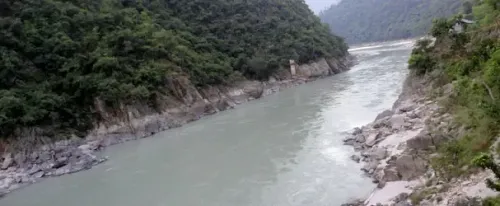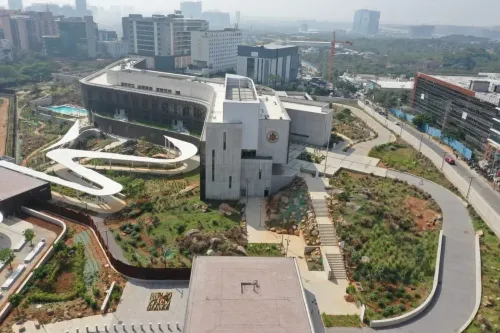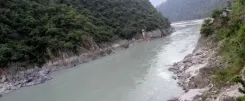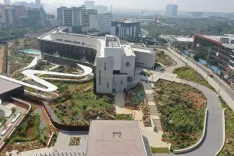Himachal Launches Bio-Engineering Program to Combat Landslides

Synopsis
Key Takeaways
- Introduction of bio-engineering to address landslides.
- Vetiver grass will be planted for soil stabilization.
- Collaboration with CRSI for sustainable strategies.
- 1,000 saplings provided free of charge.
- High survival rate of plants observed in initial results.
Shimla, Feb 13 (NationPress) In response to the rising incidents of landslides in Himachal Pradesh, the state government is rolling out a bio-engineering program, as announced by Chief Minister Sukhvinder Sukhu on Thursday.
This pilot initiative will involve the planting of Vetiver grass, recognized for its extensive root system that helps in stabilizing soil and curbing erosion.
As noted in an official statement from the Chief Minister, Vetiver grass is utilized globally for soil preservation, especially in regions vulnerable to landslides, along highway embankments, and riverbanks.
Understanding its effectiveness, the Himachal Pradesh State Disaster Management Authority (HPSDMA), in partnership with the Vetiver Foundation-Climate Resilience and Sustainability Initiatives (CRSI) from Tamil Nadu, has embarked on this venture to devise sustainable strategies for mitigating landslides.
As part of this initiative, HPSDMA has asked CRSI to establish vetiver nurseries to guarantee sufficient plant supply before the onset of the 2025 monsoon.
CRSI has provided 1,000 vetiver grass saplings at no cost, which have been planted in a nursery developed at Berti in Solan district with assistance from the Department of Agriculture.
The Chief Minister mentioned that HPSDMA is overseeing the pilot initiative to ensure the successful cultivation and distribution of vetiver grass.
Encouragingly, preliminary outcomes show a high survival rate of the saplings, with noticeable growth and adaptation to local conditions.
Vetiver grass, which can grow roots up to three to four meters deep, establishes a robust network that secures the soil, thereby minimizing landslide risks.
Functioning as a natural barrier, it decelerates water runoff and curtails soil erosion, especially on steep terrains.
When planted in rows, vetiver grass acts like a living wall, enhancing shear strength and reducing slope failures.
Moreover, its roots absorb excess moisture, lowering soil saturation, a critical element in landslide incidents. Unlike traditional engineering methods, vetiver presents a cost-effective, sustainable, and low-maintenance approach to slope protection.










